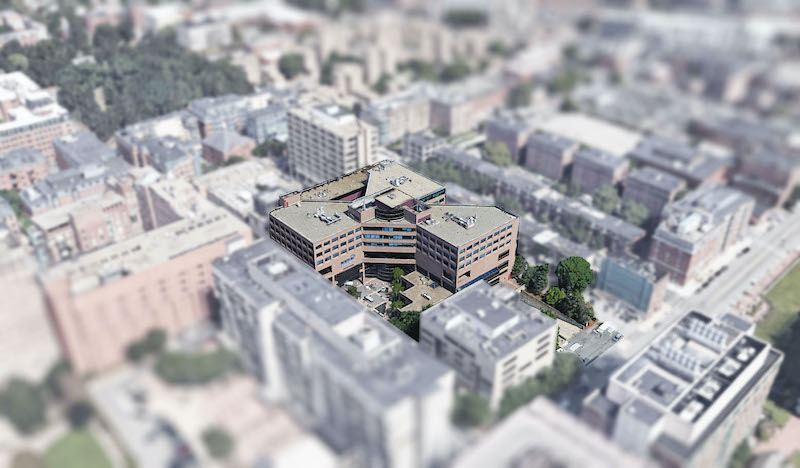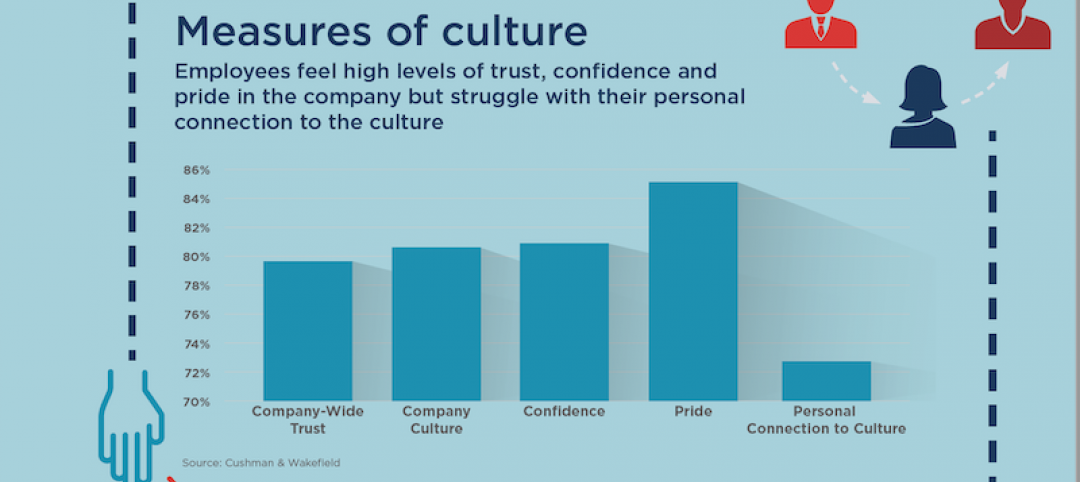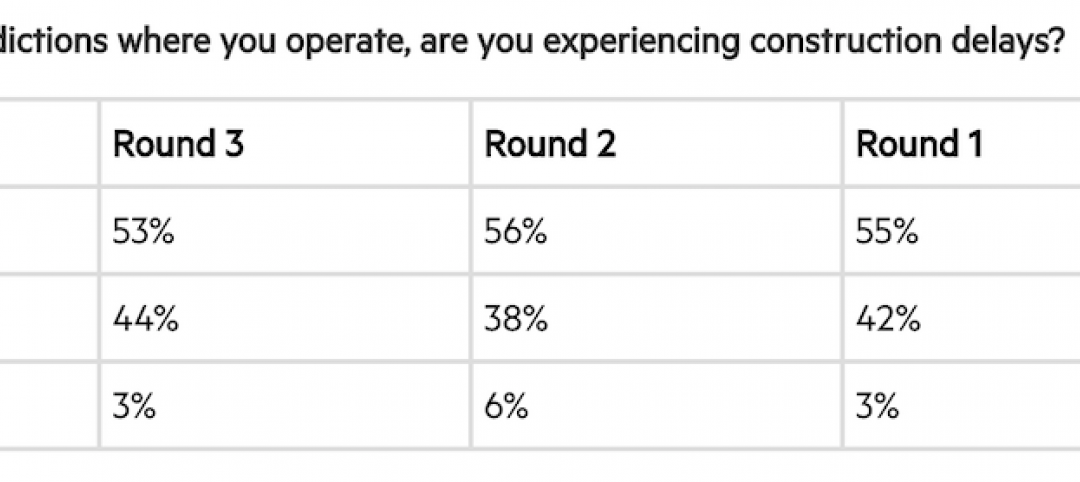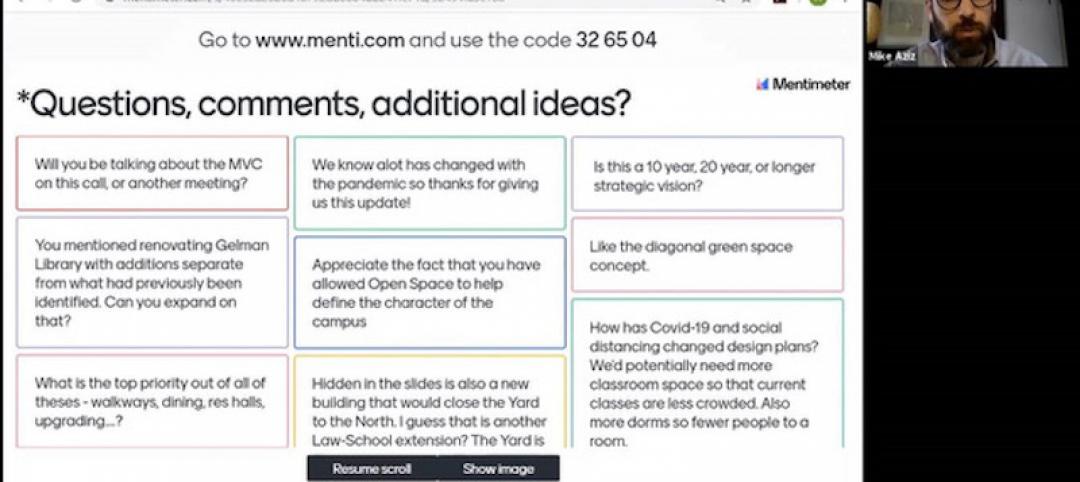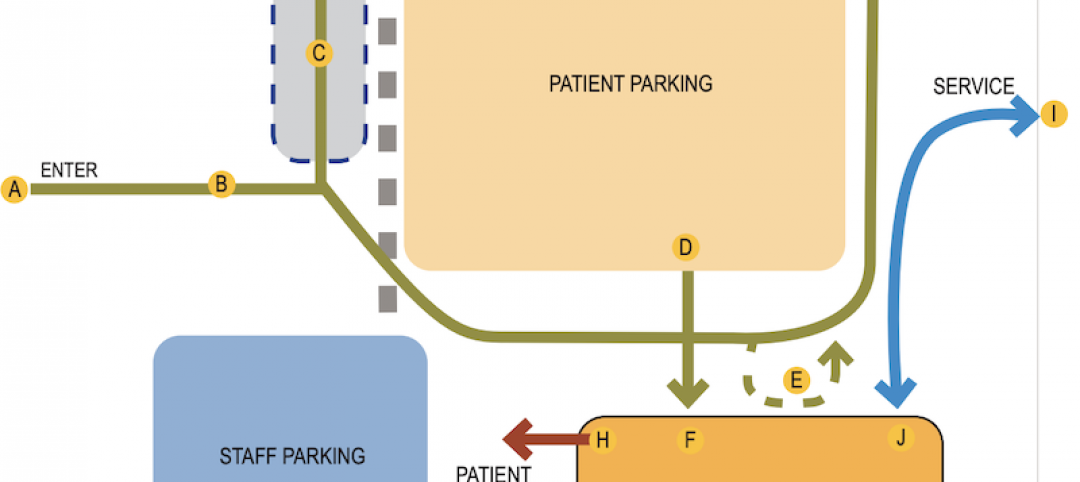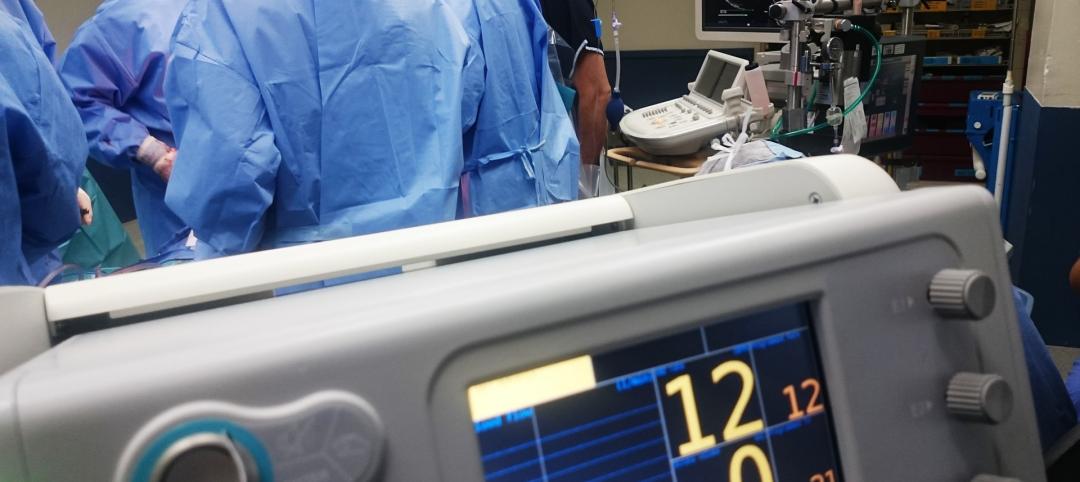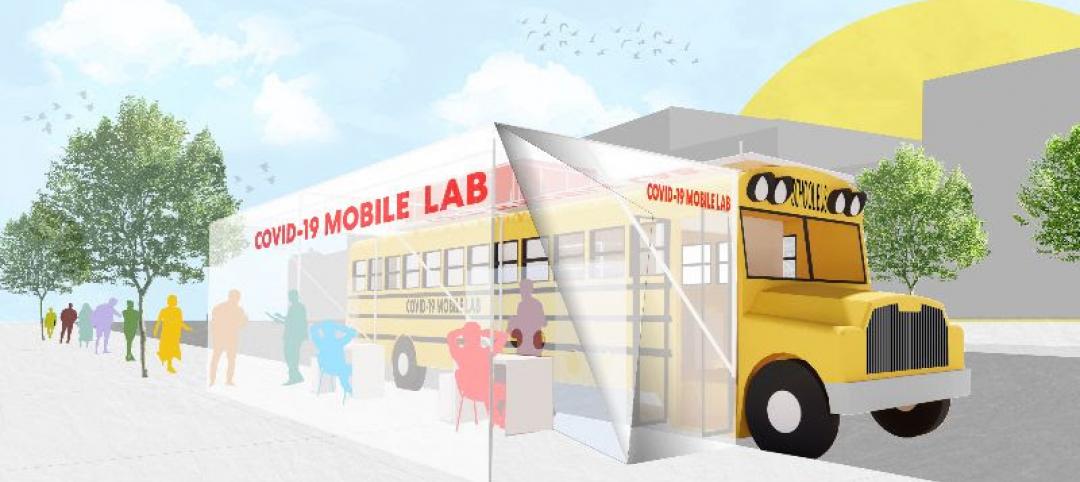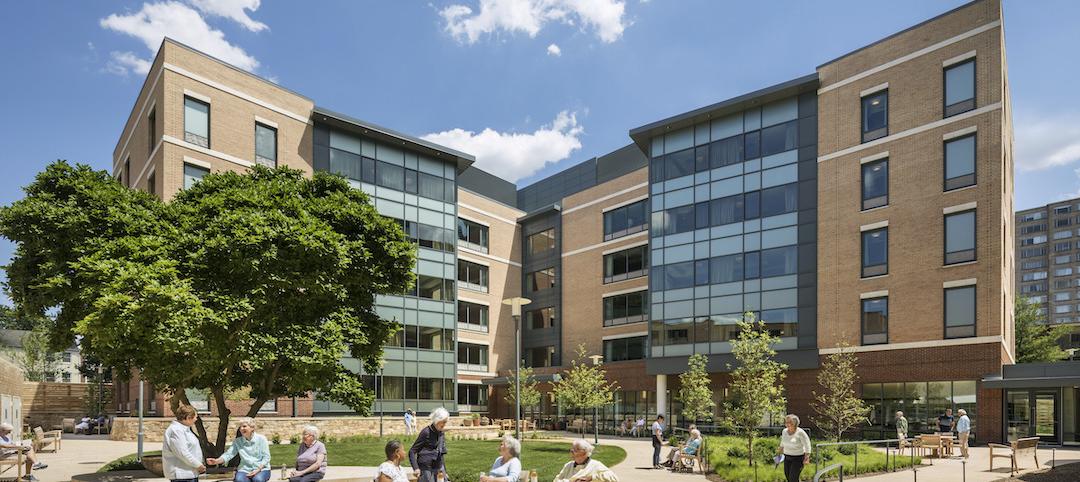The S/L/A/M Collaborative, Boston Studio (SLAM) and Gilbane Building Company (Gilbane), in partnership with the Massachusetts Division of Capital Asset Management & Maintenance (DCAMM), Boston Medical Center (BMC), Boston Healthcare for the Homeless, the Department of Public Health, led the technical planning, design and construction of a temporary quarantine shelter in response to the COVID-19 pandemic. The facility has a maximum capacity of up to 304 non-acute beds for Boston-area homeless at the former Newton Pavilion previously managed by Boston Medical Center at 88 E. Newton Street in Boston, MA.
The Newton Pavilion has been a shuttered hospital facility since October 29, 2018. SLAM and Gilbane were contracted by the current building owner, DCAMM, to assist them in assessing the building and devising an occupancy plan to convert the space for homeless patients who are not in need of acute hospitalization, yet test positive for the coronavirus, but are a-symptomatic or showing mild symptoms with orders to quarantine at home.
The coordination and focused effort to ready the Newton Pavilion for occupancy on April 9, 2020, required full-day meetings over a 28-day period held between DCAMM, BMC, Gilbane, and the SLAM design team, led by Senior Associate Loren Belida, AIA and Gilbane’s Senior Project Executive Jim Dabrowski. Following the Army Corps of Engineers review and swift approval of the occupancy plan demonstrating SLAM’s technical expertise and in-depth work in healthcare programming and planning, Gilbane was able to rapidly mobilize on-site and deliver the facility ahead of schedule.
“DCAMM was ahead of the curve when asked what it would take to temporarily re-open the “mothballed” facility” said Carol Gladstone, DCAMM Commissioner, “The project team quickly developed a very comprehensive and integrated execution plan that involved splitting construction scope between our internal team and Gilbane. I had extremely high confidence that we could rise to the challenge and deliver in a short timeframe.”
BMC will manage operations for the temporary facility and patient care will be administered by their clinical staff. The total re-occupied project area makes up approximately 166,500-square feet, spanning eight floors and the overall project scope includes the reactivation/upgrade to building systems including life safety, HVAC, fire protection, plumbing, fire protection, medical gasses, electrical and architectural upgrades.
“Gilbane is grateful for the opportunity to work on this critical project delivered by this incredibly dedicated team. Our team and subcontractor partners worked three shifts, working literally 24 hours a day to deliver this much-needed facility ahead of schedule. We’re honored to be of service to the Commonwealth and its citizens at this time of great need”, said Mike O’Brien, vice president, Massachusetts business unit leader.
SLAM and Gilbane have partnered on more than 40 projects throughout New England and across the country.
“The project team understood from day one that reinvigorating the space and systems of a “mothballed” hospital would require expertise, proactivity, coordination, and flexibility,” says Gabriel Comstock, AIA, lead healthcare planner and design architect, SLAM Boston Studio. “From the Commonwealth to the subcontractors, I’ve never seen a purer example of unyielding technical collaboration and speed to serve the most vulnerable populations at a more critical time in our community.”
Related Stories
Coronavirus | May 28, 2020
Cushman & Wakefield report examines work-at-home pros and cons
The office, now part of a larger workplace ecosystem, still reinforces employees’ connections with their companies.
Coronavirus | May 27, 2020
Clean is the new Green as U.S. hospitality sector inches closer to reopening
Three design firms share their takes on what will make customers more comfortable about returning.
Coronavirus | May 26, 2020
Multifamily developers report mounting delays in permitting and starts due to coronavirus pandemic
More than half (53%) of multifamily developer respondents reported construction delays in the jurisdictions where they operate, according to the third edition of the National Multifamily Housing Council (NMHC) COVID-19 Construction Survey.
Coronavirus | May 26, 2020
9 tips for mastering virtual public meetings during the COVID-19 pandemic
Mike Aziz, AIA, presents 9 tips for mastering virtual public meetings during the COVID-19 pandemic.
Coronavirus | May 22, 2020
Designing a health facility for the next pandemic
Planning with intent is the key to readiness, states Eppstein Uhen Architects, the guide’s author.
Coronavirus | May 22, 2020
COVID-19: Healthcare designers look to the future of medical facilities in light of coronavirus pandemic
The American College of Healthcare Architects (ACHA) has released the key findings of a survey of its members revealing their insights on the future of healthcare architecture and the role of design in the context of the COVID-19 healthcare crisis.
Coronavirus | May 18, 2020
Will empty hotels provide an answer for affordable housing shortage?
A Los Angeles-based startup sees the Midwest as most fertile for adaptive reuse.
Coronavirus | May 18, 2020
Infection control in office buildings: Preparing for re-occupancy amid the coronavirus
Making workplaces safer will require behavioral resolve nudged by design.
Coronavirus | May 18, 2020
Global design firms collaborate on new COVID-19 mobile testing lab to bring testing to vulnerable communities worldwide
Perkins and Will, Schmidt Hammer Lassen Architects, and Arup Group develop scalable solutions for increased testing capacity within high-density and under-served neighborhoods.
Coronavirus | May 11, 2020
Experts offer a 13-point plan to reduce coronavirus deaths in nursing homes
Two nationally recognized experts in the design of senior living facilities offer a 13-point plan to protect our frailest citizens.


